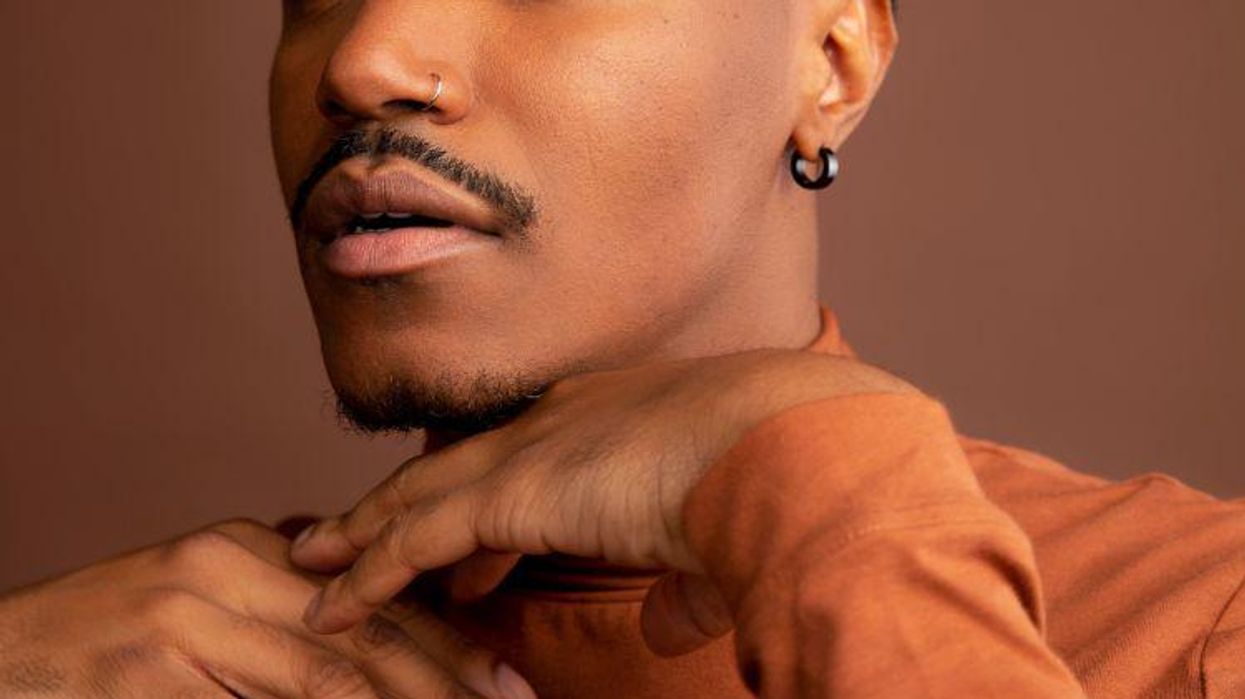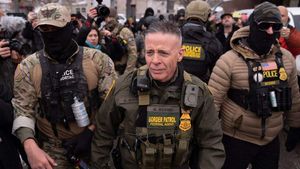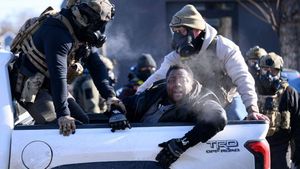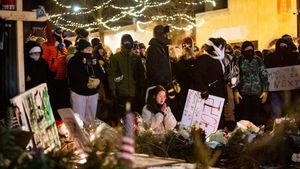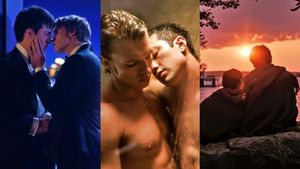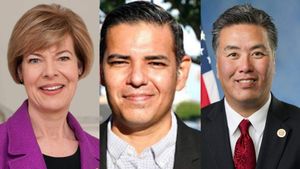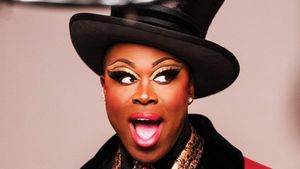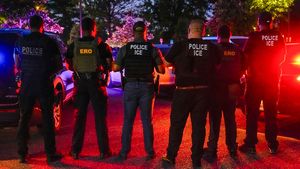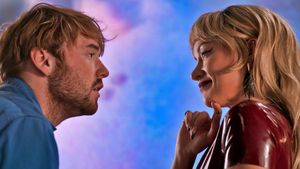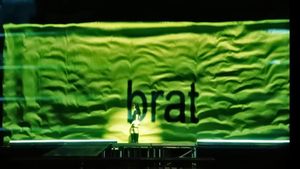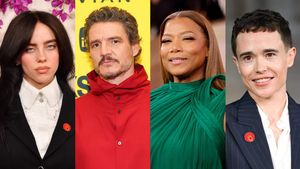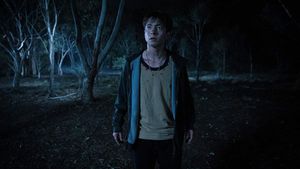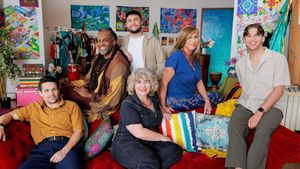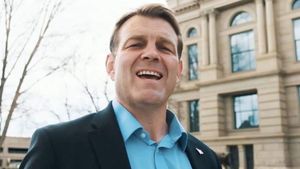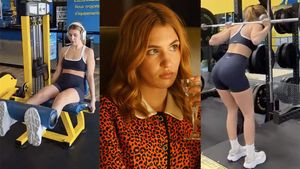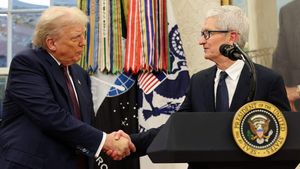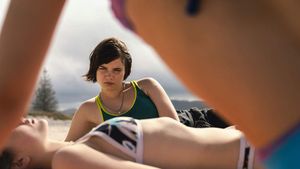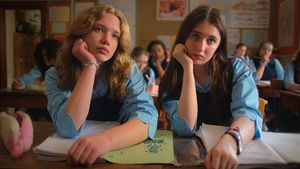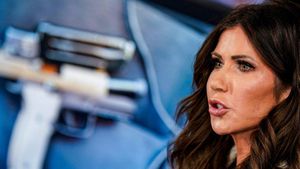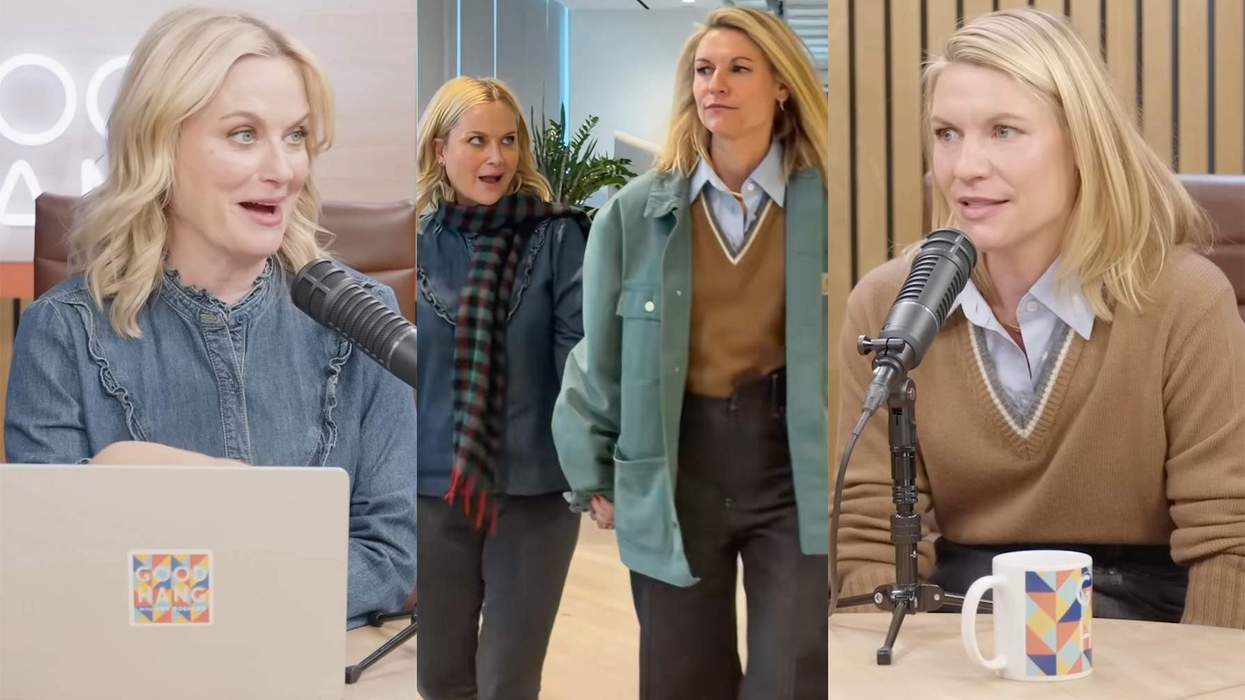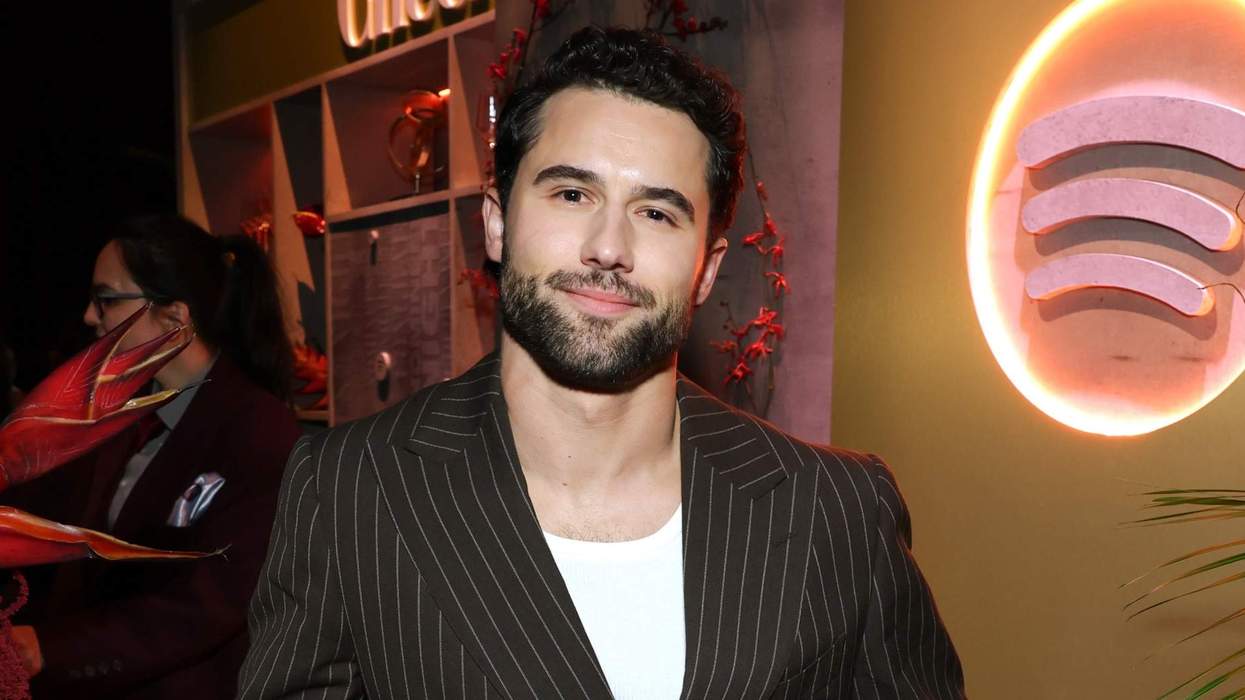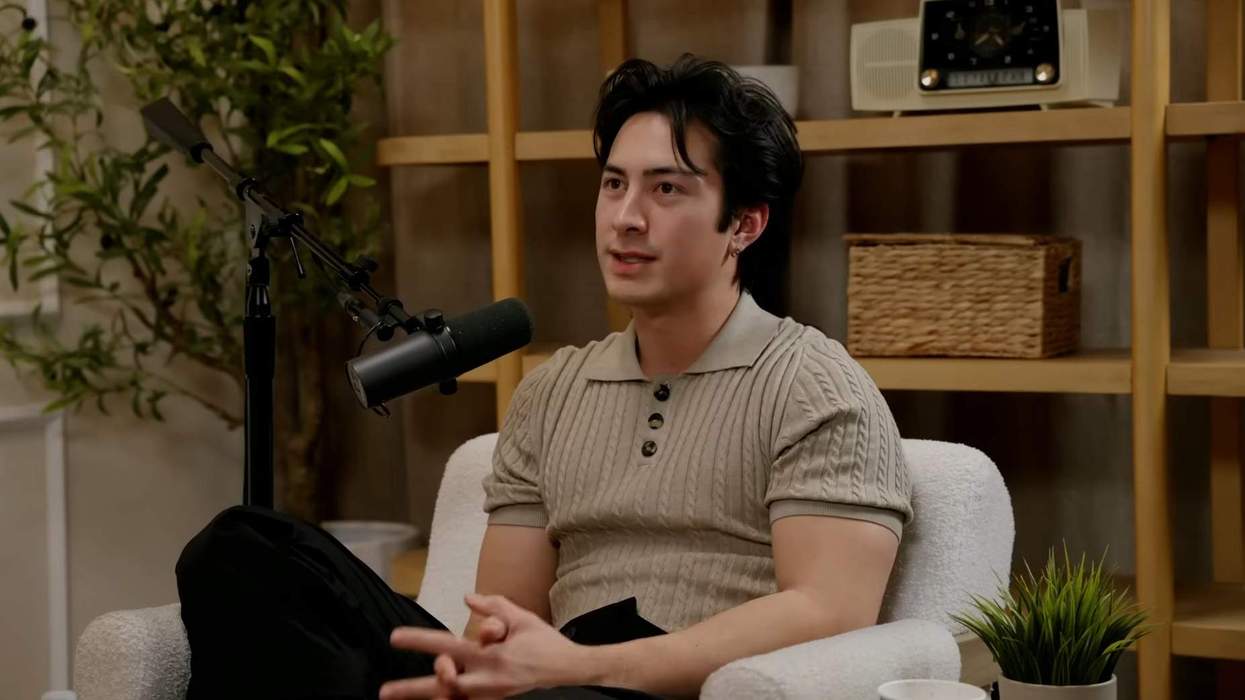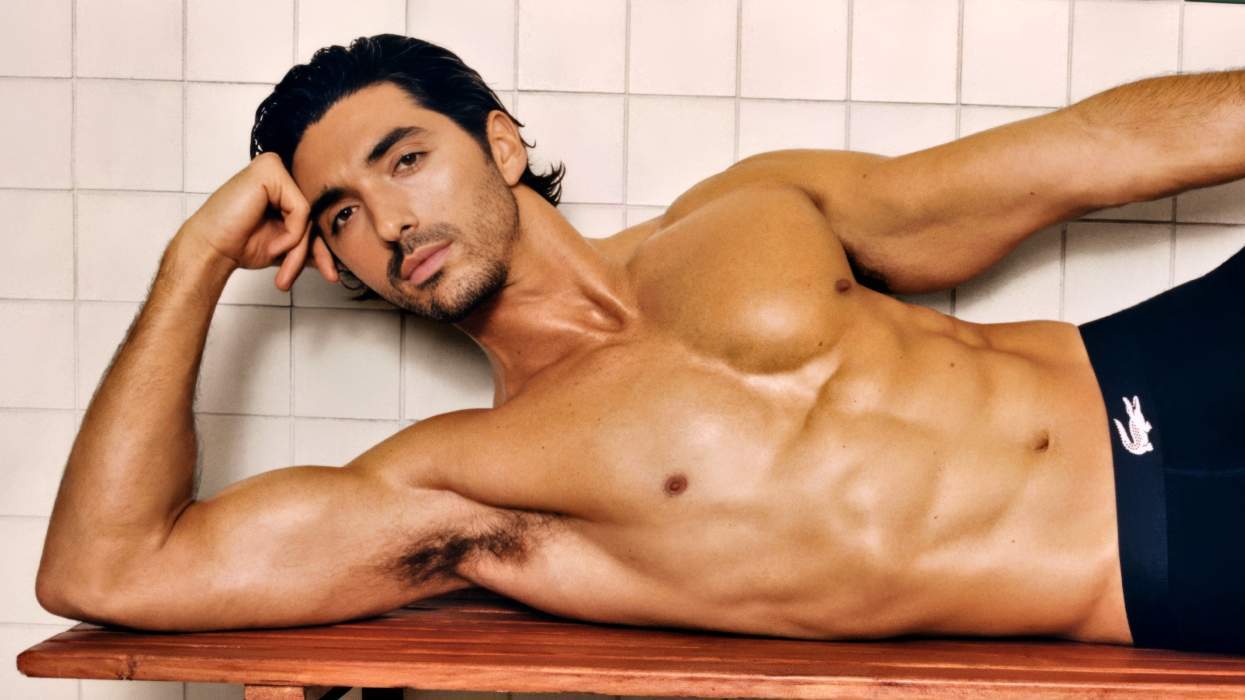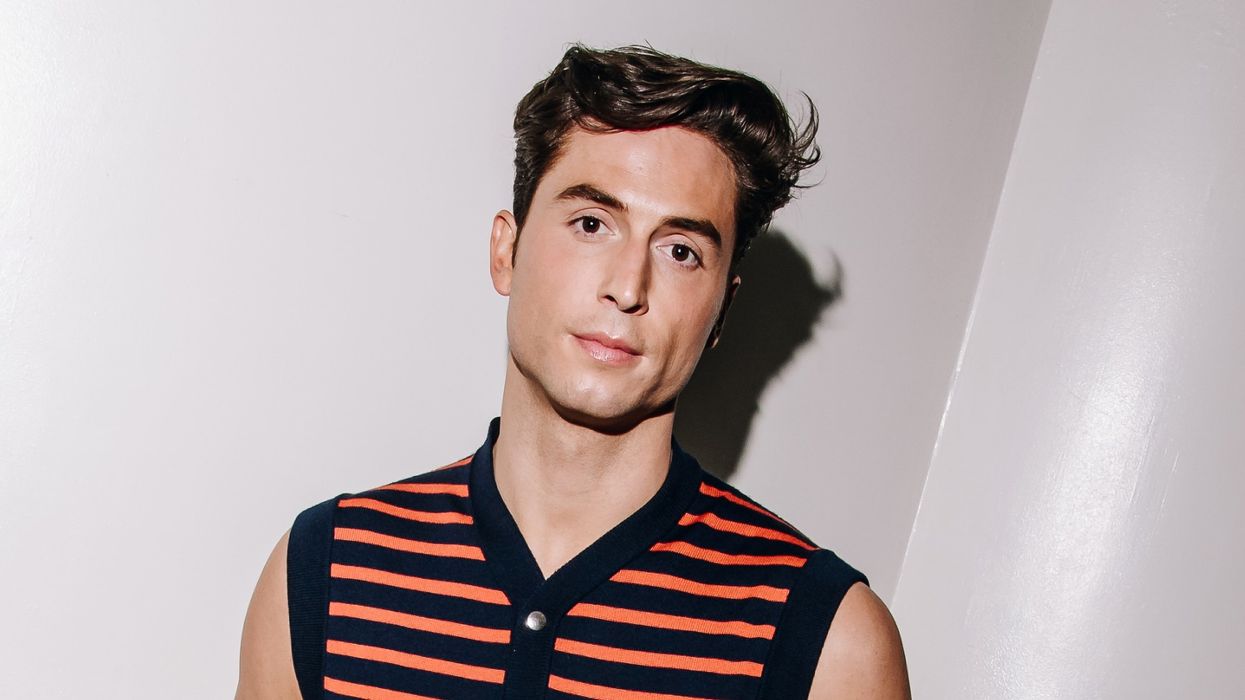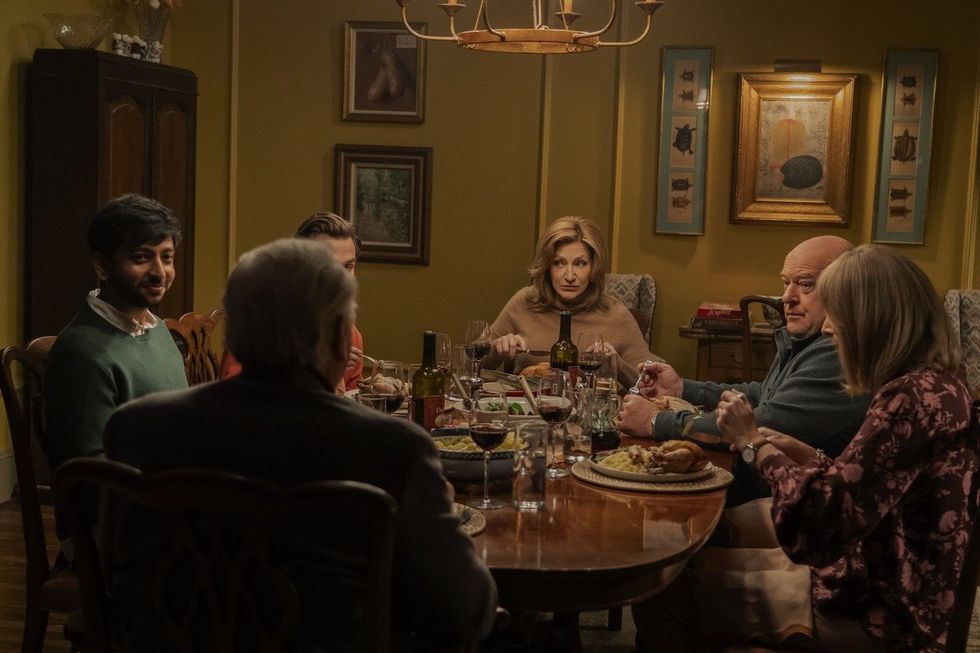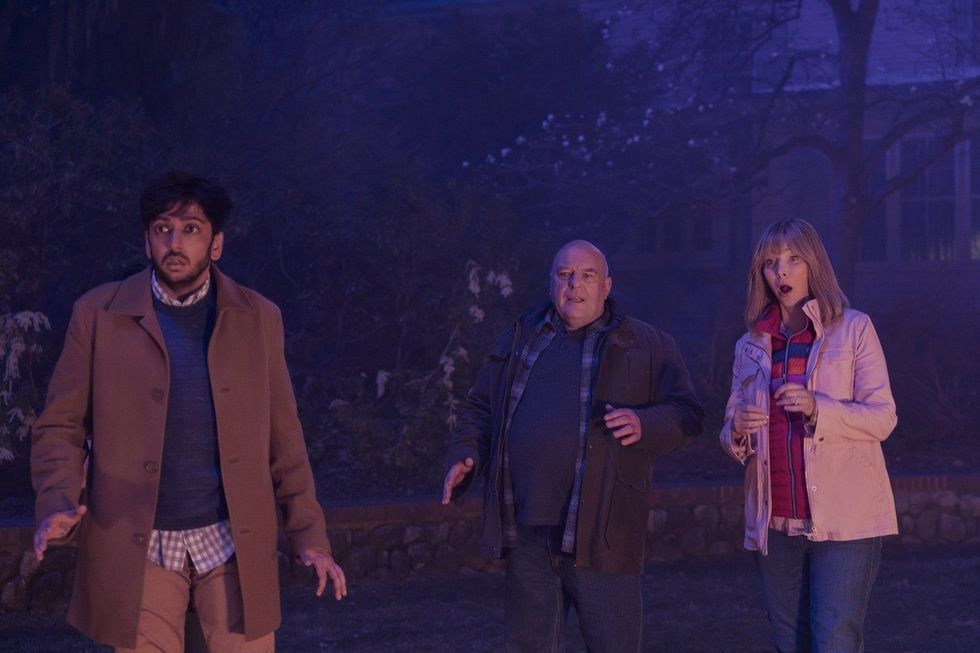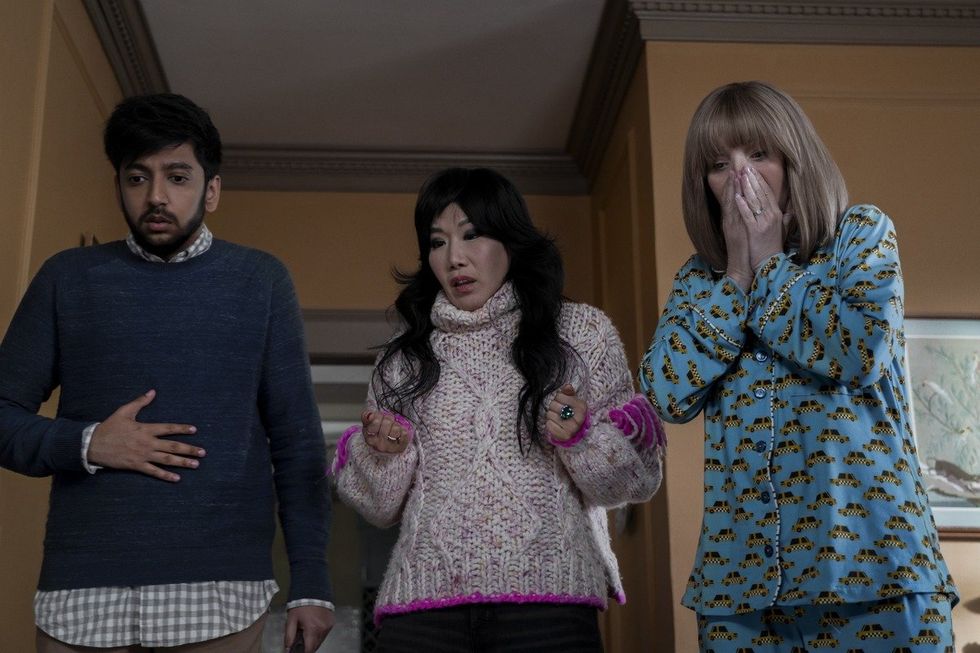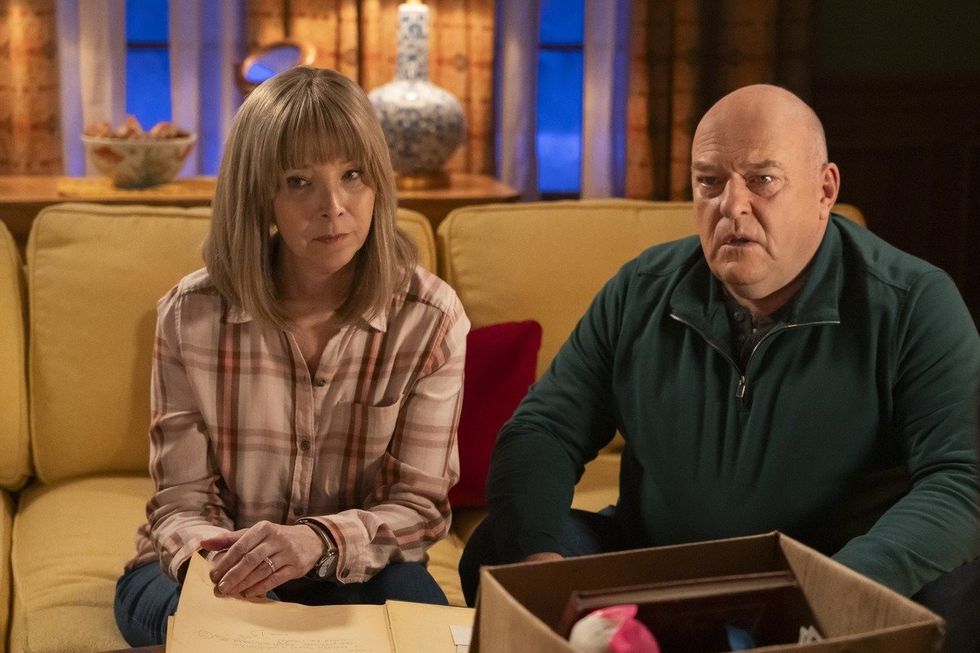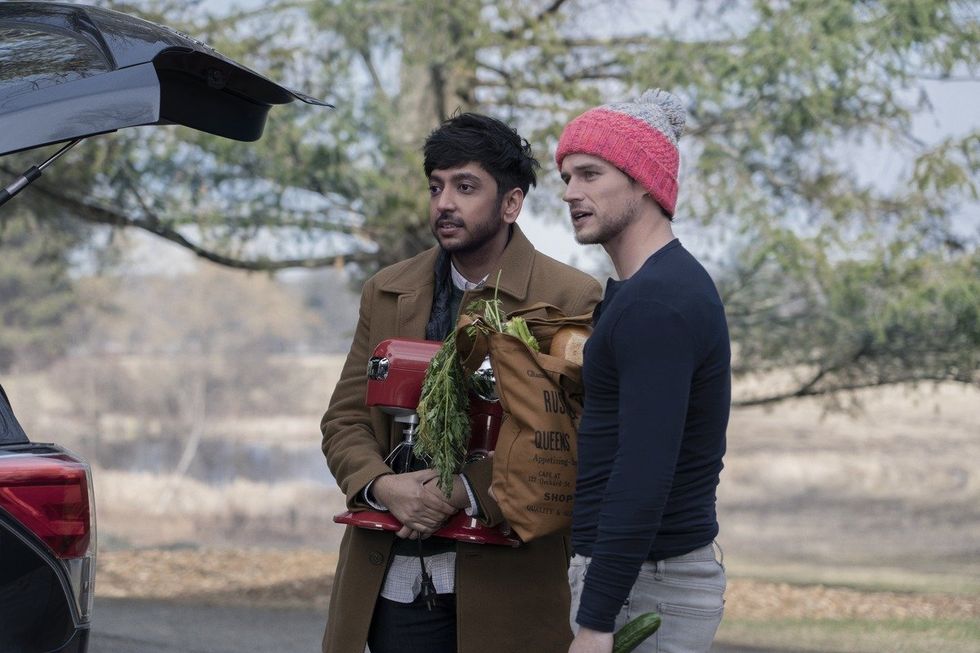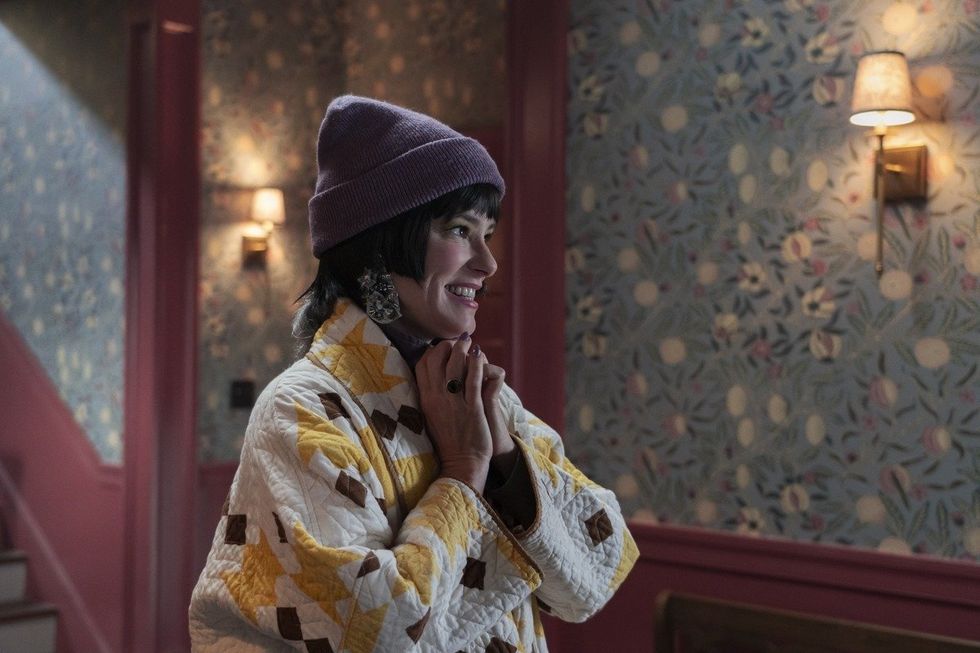It's a long-running trope that the Black person dies first in horror movies—but what happens if everyone in the movie is Black? We get the answer in Comedy Central's sketch The Blackening.
Created by the comedy group 3Peat and written by comedian Dewayne Perkins, The Blackening follows an all-Black group of friends (who ain't got no business camping) as they get chased by a serial killer. In the sketch, Perkins' character falls to the ground "like a white woman" and we assume he dies, but after the rest of the group makes it to safety, he pops back up and drops a bombshell.
"You know how in horror movies, the psycho killer always kills the Black person first," he starts. "Well, when he saw we were all Black it kind of fucked up his mind and because I fell like a white woman, he let me go."
The killer says he will let all of them live if they agree to sacrifice the Blackest person in the group. That's when the group of friends begin to compete and see who's the whitest based on trivial things like who smells like cocoa butter and who keeps hot sauce in their bag.
What results is a hilarious role reversal of Black people in horror and a commentary on how Black and queer people are depicted in the genre. And what started as a sketch is set to become a full-length feature film written by Perkins and Girls Trip writer Tracy Oliver. PRIDE talked with Perkins about The Blackening, the current renaissance of Black-led horror films, and reframing the horror genre through a queer lens.
PRIDE: Tell me about The Blackening skit, how it got started, and how Comedy Central got involved?
Perkins: It started as a sketch that I wrote for a variety show at Second City in Chicago. It was called Afrofuturism and was put together by the predominantly Black performers. All of us felt like we were the only Black person within the different sections of the theater so we were like, "Let's come together and make our own show." I wrote the sketch and we did it and it worked and it was very funny. From that show, a couple of us were asked to write an original show so we wrote a hybrid sketch-standup show and that sketch became the opening for that show.
Comedy Central reached out to 3Peat, my comedy collective, to do online sketches. The Blackening was one of the ideas that I pitched to Comedy Central and they picked it as the first sketch to do. It didn't change that much from the original, but we updated it and added jokes that were specific to the members of 3Peat.
Then they filmed it. The response was better than I ever thought. Tracy Oliver saw it and she reached out to us and was like, "Hey, I think it's a great idea. I think we could make this into a movie." All of 3Peat was like, "Yay!" We had an offer before we even had to pitch it.
Wow.
It was fantastic. We just turned in our second draft. We're waiting for our notes now. That's been the process so far.
I'm excited for you. Do you have any actors you want to work with? A dream cast or anything?
Me. I would like to be in it. [laughs] I'd like to keep the role that I originated of Dewayne.
No one else was going to write like this because no one else is us. So, it's been nice to have that creative power to literally insert yourself into the art that you want. That's why we do it.
But I don't necessarily have a dream cast. Of course, there are people in my mind that I don't even think necessarily are perfect for the role, I just like looking at their faces. Like Trevante Rhodes, what are you doing?
I don't have any people in mind at the moment because the script is still changing. I still have the characters in my mind from the sketch so it would be actually very interesting to see who actually can step into the roles that, in my mind, are still members of 3Peat.
The sketch really challenges those kinds of horror movie tropes that we're so used to, especially as Black people. Less so with queer people because there aren't really that many queer people in horror movies. When you first wrote it, did you set out to challenge how Black people and queer people are portrayed in the genre?
Most of my creative point-of-view comes specifically from my life experience. I am not thought of societally when things are created so it's a very easy method for me to be like, "How would this differ if I put myself in it seeing as my point-of-view is one very far from what the point-of-view usually is?" The Blackening was just, "Okay, what if I was in a horror movie? How would my identity dictate the choices that I make? How would my Blackness and my queerness affect whether I live or die in a horror movie?"
And that's why I find it so interesting when people are like, "You talk a lot about being Black and gay." Yeah, because that's my identity. It informs everything that I do. It seems as if I'm talking a lot about it just because you have not seen it. That's not the problem.
And I'm not doing this to myself. This is in response to society. When straight white men are talking about straight white stuff, no one's talking about, "Why are you talking about straight white stuff?"
Yeah, we're used to it.
It's normalized in that way. If we were in a horror movie, what choices would we make? That was the fun of the sketch. It was a very simple premise. The Black person dies first. But if everybody's Black, how do you decide who dies first? What would you do?
And that question alone is hilarious.
Yes. But then that kind of flipped the idea. I didn't want a bunch of Black people to be like, "Let's talk about who's going to die because they're Blackest." I wanted them to talk about who wants to live because they're the whitest. And talk about whiteness as the juxtaposition to Blackness versus Black people be like, white people be like. We do things that are categorized as whiteness because it seems as if it's so far to Blackness but really Black people can do all kinds of stuff. Yeah, Black people watch Gilmore Girls, but decidedly that is seen as a white thing. This is really showing how Blackness is not a monolith. By being able to have those conversations, we all are weird people that do different things through different lenses. Be it Black, white, it just doesn't matter.
Yeah, we all love being Black. But now that the stakes are what it is, who's the first one that uses whiteness to live? And that was just like a very funny premise that opened up a lot of commentary on race and sexuality and just identity politics in general.
I don't know how much you can answer about the upcoming movie or say about it in general, but are you expecting more of a comedy kind of horror? Is it horror at all? Is it going to be a satire?
It's a combination of all of those things. It's for sure a comedy and it's for sure horror. There are people brutally dying but it's still seen through a comedic lens. We are trying to make a movie for the people that yell at movies, "That couldn't be me" and then I'll be like, "Okay, let's put your ass in a movie then because you talking so much shit. You think you're going to kill this killer? What training have you had? What can make you so confident that you would survive in a horror movie?"
That makes me laugh. We don't see a lot of Black people in horror movies so let's put a bunch of Black people in a horror movie and realistically portray how you think they would react.
It kind of feels like we're having a renaissance of Black people in horror films. With Jordan Peele's Get Out, the upcoming movie Candyman, and a handful more of Black horror movies, it feels like a resurgence. What do you think of this renaissance of Black people in horror films and movies and do you hope your movie is going to be a part of that?
I would love to be a part of that. I do think that there is such a symbiotic relationship between comedy and horror. Most comedy is horrific incidents seen through a comedic lens. Blackness is tied so closely to the trauma that it's nice to be able to put Black people in a situation where the horror doesn't necessarily come from the internal.
That is fun because I think it's taking away the narrative that horror is inherently tied to Blackness in a non-fictitious way. It's changing the conversation around Blackness in general because we're seeing Black people in a way that you haven't before, where they are the subject versus being the tangential character. I'm using my life as a Black person to dictate how to handle this in a way that we've never seen because usually, it's not through my point-of-view. That is really changing the scope in the space of horror and I would be honored to be a part of that.
It's been a year or so since you've moved to LA. Just being a Black comic in LA, how's that working out for you? What do you think of this industry so far?
It's great. I lived in Chicago and New York prior to this so I don't see it like I came to Los Angeles having to start over. I came with all of the things that I've already done, so I didn't necessarily feel that I had to prove myself. I was coming here to continue what I've already done.
The success I’ve had in writing helped solidify me as someone who knows what they’re doing in the eyes of my peers. Feeling like I can do stand up for me and not being like, "I have to prove myself or do this." I've been allowed to do stand up in a very real and organic way and really being picky about what I do, what shows I do and how often I do it. I've been granted the privilege of being able to be more selective because of the credits that I've gotten. It's been very nice. I started to do stand up because it was a tool in which I felt I could sincerely say and do what I wanted.
It's kind of surprising when your hobbies suddenly become a profession and now I am getting other types of work from stand up. I definitely still have a stake in stand up, but I don't feel the need to do stand up for the sake of stand up anymore. It’s nice to be able to choose what I do based on what I really care about.
It has created a very nice, peaceful relationship with stand up. It just feels like a part of my life.
